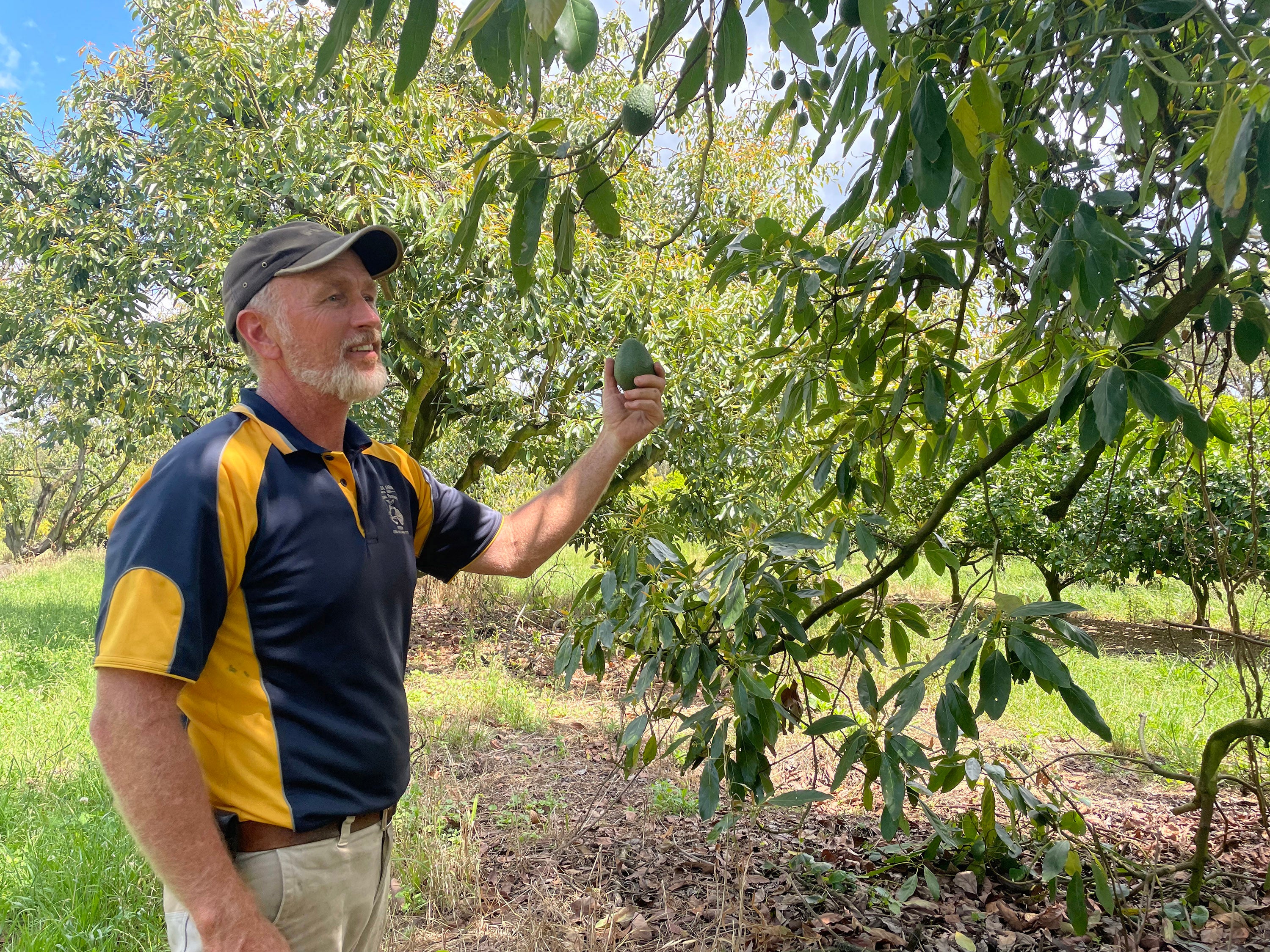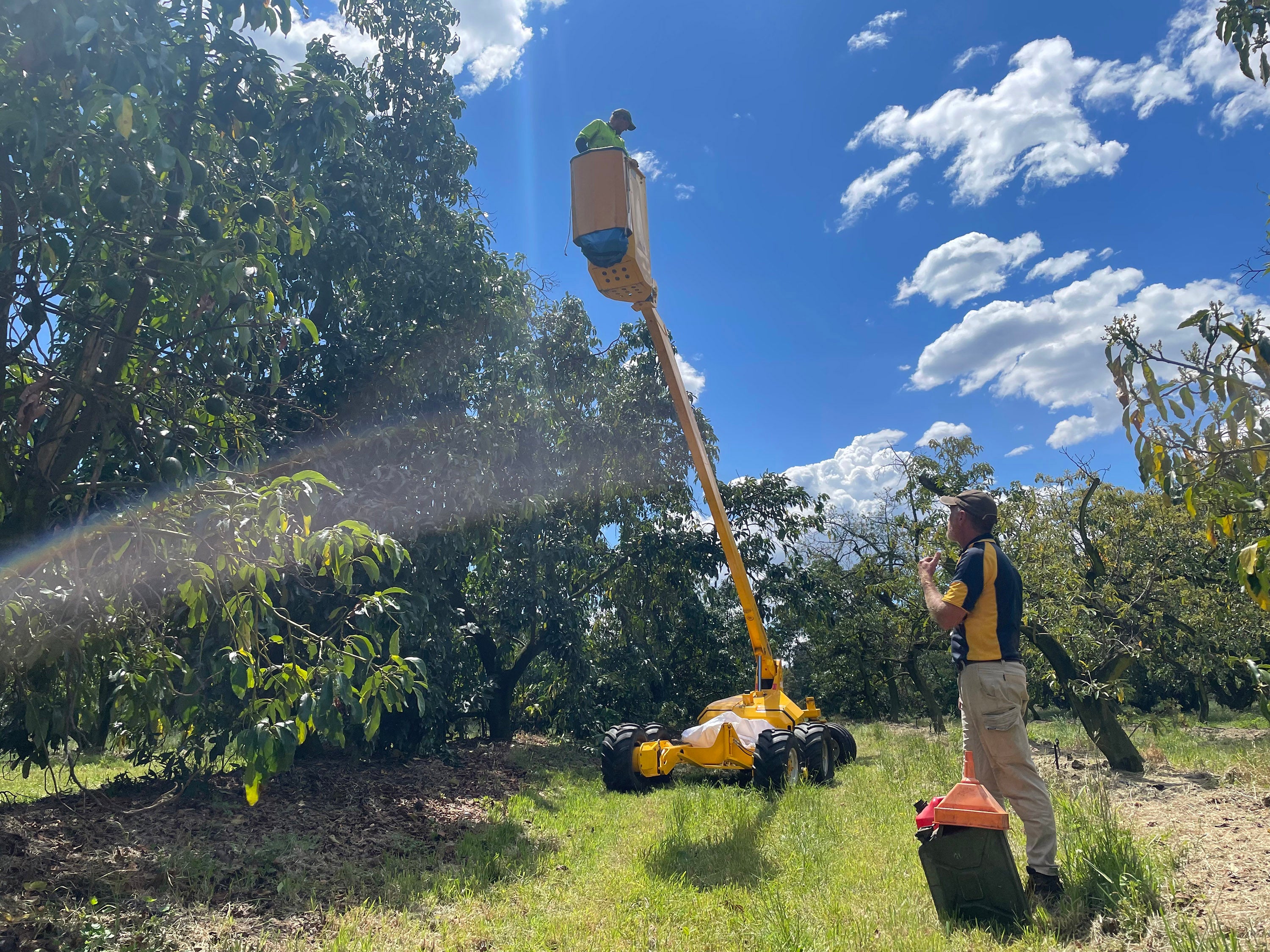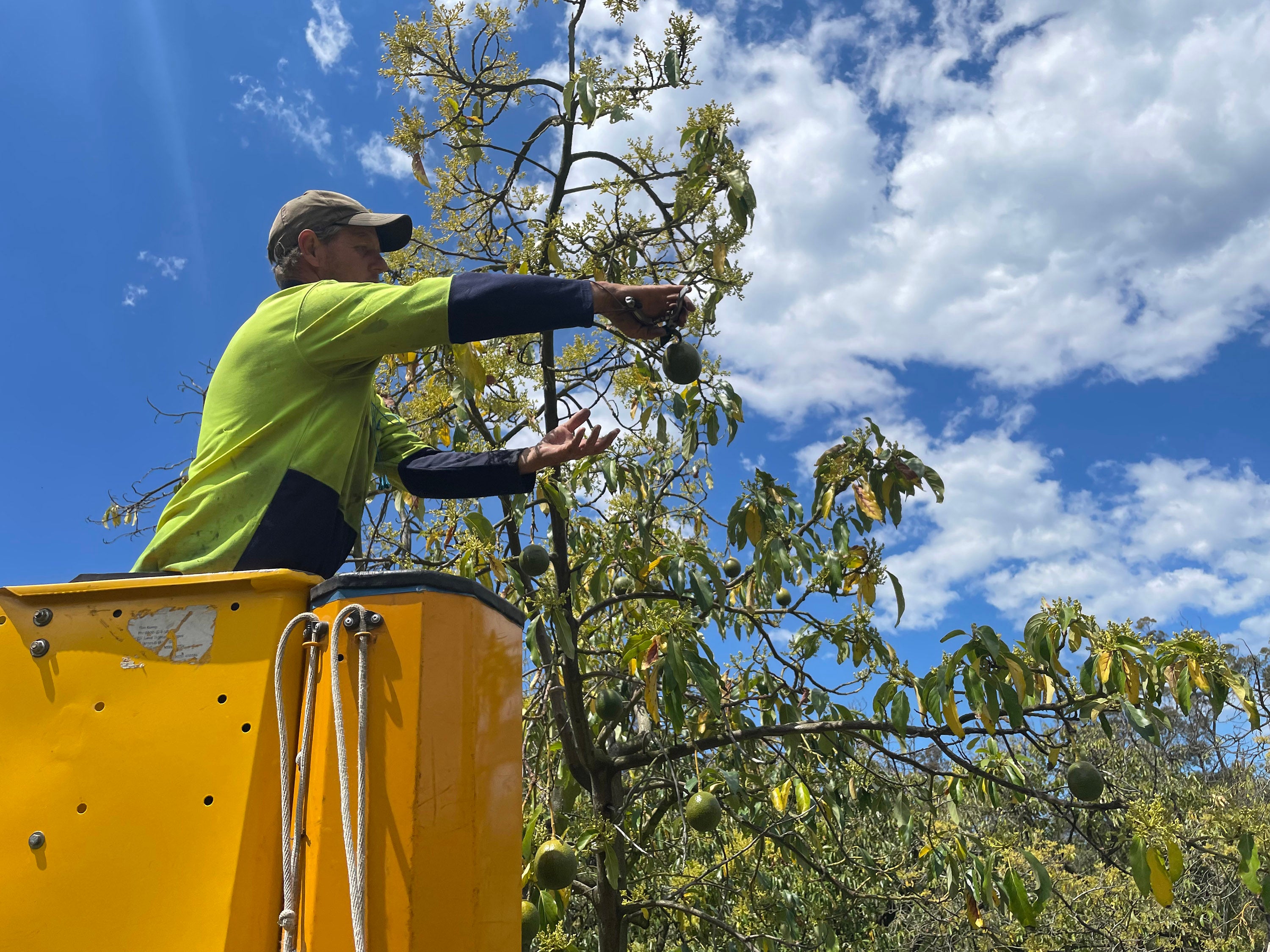Too many avocados: Australian farmers feel the struggle as avocado prices plummet
For a long time avocados have been a staple in the millennial diet, now there are too many of the fruits and the price has dropped, writes Michael E Miller

Your support helps us to tell the story
From reproductive rights to climate change to Big Tech, The Independent is on the ground when the story is developing. Whether it's investigating the financials of Elon Musk's pro-Trump PAC or producing our latest documentary, 'The A Word', which shines a light on the American women fighting for reproductive rights, we know how important it is to parse out the facts from the messaging.
At such a critical moment in US history, we need reporters on the ground. Your donation allows us to keep sending journalists to speak to both sides of the story.
The Independent is trusted by Americans across the entire political spectrum. And unlike many other quality news outlets, we choose not to lock Americans out of our reporting and analysis with paywalls. We believe quality journalism should be available to everyone, paid for by those who can afford it.
Your support makes all the difference.On a recent morning, Tim Kemp slides open the door of the refrigerated storeroom on his family farm near Sydney and removes over eight tonnes of avocados.
A few years ago, the giant bins of green fruit would have been worth almost £30,000.
Today, Kemp expects a fifth as much. “We are basically selling avocados for less than the cost of production,” he says.
Welcome to the great Australian “avo” glut.
In the land that allegedly invented avocado toast, the superfood is suddenly super cheap. A combination of increased supply and reduced demand – slashed by months-long lockdowns that shuttered cafes in Sydney and Melbourne – has sent the supermarket price of an avocado plummeting to about 45p.
As Australia reopens and consumers salivate at the prospect of a hot avo-toast summer, farmers that were flush a few years ago are now feeling crushed. Some are dumping the formerly expensive fruit any way they can, including turning them into cooking oil or running them over with tractors.
“It’s a perfect storm of low prices,” Kemp says. “This has been coming for five or six years. I just didn’t expect it to hit us as hard as it has. It’s really smashed us.”
The coronavirus pandemic has wreaked havoc on commodity prices around the world. But unlike the supply chain disruptions that have led to shortages of shipping containers and champagne, among other things, Australia’s avocado issue is primarily a homegrown problem.
You’ve been really looking after that fruit, keeping everything off of it to give someone a good eating experience, to have it fall on the ground, it sucks
Long before avo toast became obligatory on brunch menus on this side of the world, it was big in Australia, where newspapers mentioned it as far back as 1929 and a Sydney cafe began serving it in the early 1990s. As demand soared in the past decade – sparking a debate over millennial spending habits – Australian avocado production more than doubled.
This year production has risen by 65 per cent, according to John Tyas, CEO of industry group Avocados Australia.
The boom is partly due to ideal growing conditions after years of drought, he said. But it’s also a result of tens of thousands of avocado trees – planted three or four years ago when prices were high – now beginning to bear fruit. A recent increase in avocado imports has only added more guac to the pile.
Just as growers were starting to pick this year’s record crop, coronavirus lockdowns in the country’s two most populous states took a bite out of demand.
The pain was initially felt on the farms of northern Queensland, where the orchards ripen first. Alan Poggioli is normally able to sell his small or blemished avocados for use as guacamole paste. But this year, the market was too flooded with fruit. So, for the first time, Poggioli took 10 to 20 tonnes of avocados to the back of the farm and dumped them.
“We just ran over them with some tractors,” he says.
Further south in Queensland, Tony Pratt and his wife left avocados on their trees as long as possible in the hope that the price would rise. But by August, when they’d normally finish up picking, avocados they had been growing for a year began to drop.

“You’ve been really looking after that fruit, keeping everything off of it to give someone a good eating experience,” Pratt says. “To have it fall on the ground, it sucks.”
The Pratts scrambled to save the avocados, only to find they were often making just a few pence for each one they sent to market. Julie Pratt took to social media to sell avocados directly to customers. Tony began hawking them on the roadside and giving 50kg bags of them to friends to feed to their cattle and pigs.
“They love the things,” he says.
Ian Tolson, an avocado grower and packer in Stuarts Point, New South Wales, says that although he sent away a lot of lower-end fruit to be turned into oil this year, he still had a few hundred tonnes of surplus avocados that he dumped on a corner of his farm for composting.
“Australia is going to have a lot of avocados in the coming years,” he says, as more trees reach maturity.
Many small farmers blame Big Avocado, especially international corporations, for flooding the market.
Izzy Adar, a northern New South Wales grower who claims that his grandfather was the first to bring avocado farming to Israel, said he could survive a few years of low prices. But a longer glut would force small farmers like him out of business.
“It’s just Capitalism 101,” counters Trevor Bendotti, a second-generation avocado grower in Western Australia whose farm is about four times the size of Adar’s.
“Avocados in the last five years have had some of the best returns on production costs out of any commodity ever,” he says, adding that growers now need to become more efficient to weather lower prices. “For the ones who’ve been milking this, who rode this canoe, that ride is no longer so smooth.”

Kemp, whose farm sits on a slight plateau an hour north of Sydney, agrees. His father started growing the fruit in the 1980s, when Kemp was a kid, at the suggestion of someone from the Department of Agriculture.
“My dad said, ‘What the hell are avocados?’ ” Kemp jokes.
The farm now has 3,000 avocado trees, about half of its orchards.
On a bright, clear morning last month, Kemp bounces around his property in a beat-up truck with his dog Millie in the back, before pulling to a stop in front of a bright yellow cherry picker.
“Hey, Rob,” he shouts up at Rob Clark, who is plucking avocados high up in the air. “Come on down so I can put some fuel in. You’re going to get stuck up there.”
After the refuelling, Clark moves from tree to tree, dropping Reed avocados the size of grapefruit into a bag before dumping them into a half-tonne bin to be sent to the packing house.
At lunchtime, Kemp and his wife, Elise, discuss the glut as their two teenage sons mill about in matching farm shirts, one of them wearing an avocado-themed hat.
“Covid made a disastrous season even more – what’s the word?” he asks.
“Catastrophic,” Elise says.
Kemp says he resisted the temptation to expand rapidly when prices were high. Now he is using the glut to prune or pull up less-fruitful trees ahead of schedule. By next year, he’ll be down to 2,000 avocado trees, but they will be healthier and more productive.
“The idea,” he says, “is to farm fewer, better.”
© The Washington Post




Join our commenting forum
Join thought-provoking conversations, follow other Independent readers and see their replies
Comments